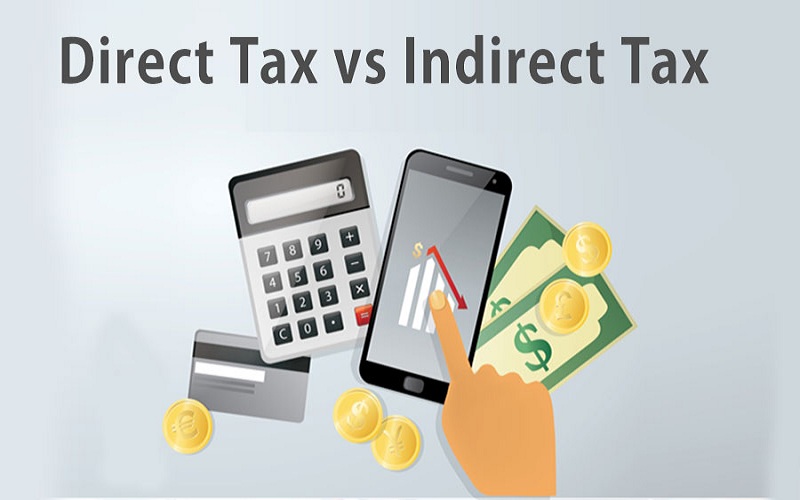De-Stress Your Taxes: Smart Planning for a Smooth and Easy Filing Experience
Tax planning is a critical aspect of financial management, essential for minimizing tax liabilities and maximizing savings. With proper strategies, tax season no longer needs to be stressful. Intelligent tax planning empowers individuals to take control of their financial futures, ensuring compliance with regulations while optimizing deductions and credits. This article will outline critical strategies for a stress-free tax season, from leveraging tax-deferred accounts to maximizing deductions and credits. By implementing these tactics, individuals can navigate tax complexities.
Tax Planning Basics: Starting Your Financial Year Right
With the dawn of a new financial year, it’s opportune to embrace the nuances of tax planning with proactive vigor. Anticipating challenges and addressing them with savvy solutions is paramount, and a central tenet of this approach involves alleviating financial burdens wherever possible. Utilizing promo codes for tax preparation services exemplifies this proactive mindset, effectively trimming costs from the outset and fostering a culture of economic prudence.
Keep Up with Tax Law Changes
Staying updated on tax law revisions is crucial for effective tax planning. The tax landscape constantly evolves due to legislative changes, with the IRS regularly issuing updates that can impact your financial strategy. Being aware of these adjustments, like changes in tax brackets or deduction thresholds, enables you to leverage new opportunities for tax savings. For instance, recent updates have modified standard deductions and home office deduction guidelines. Additionally, temporary adjustments, such as those related to pandemic relief efforts, can unexpectedly affect your taxes. You can capitalize on temporary tax reliefs and stimulus measures to optimize your financial planning by staying informed and adaptable.
Maximizing Deductions and Credits
Maximizing deductions and credits is critical to minimizing your tax liability. Deductions reduce your taxable income, while credits directly decrease the tax you owe. For individuals with substantial expenses like mortgage interest, state taxes, or charitable contributions, itemizing deductions can offer more significant financial advantages than taking the standard deduction. Deductions for unreimbursed job expenses, educational tutoring, or specific medical costs often should be noticed. Conducting a thorough review of your finances to identify these overlooked opportunities can significantly impact your tax bill or boost your potential refund. However, maintaining meticulous records of all transactions related to potential deductions and credits is crucial. Comprehensive documentation enhances your ability to substantiate your claims, whether using sophisticated tax software or seeking assistance from a qualified tax professional.
Investments and Their Impact on Taxes
The strategy surrounding investments and their timing can profoundly affect your tax standing. Unlike regular income, capital gains from investments are taxed differently, and understanding these distinctions is critical to efficient tax planning. Decisions like when to sell assets can significantly alter your tax liabilities because long-term capital gains are taxed at a lower rate than short-term gains.
Conversely, strategically realizing investment losses, a tactic known as tax-loss harvesting, can counterbalance gains and mitigate overall taxable income. This nuanced dance of recognizing gains and losses can be a complicated but rewarding component of savvy tax planning.
Effective Record Keeping for Tax Purposes
Good record-keeping practices are the backbone of tax planning. This involves diligently tracking all financial transactions that may influence your tax liabilities. Receipts, invoices, bank and credit statements, and healthcare expenses constitute crucial records that substantiate your deductions and credits.
Leveraging technology for record-keeping offers numerous advantages, such as accessibility and backup options. Scanning and storing documents digitally and utilizing cloud services to store financial records can lead to an organized and secure system for managing tax-related documents.
The value of maintaining accurate records transcends tax preparation; it provides a defense in case of audits and an accurate history for calculating the cost basis of property and investments, which is vital for calculating capital gains.
Employing Tax Software for Efficiency
Embracing technology in your tax planning can yield a high return on investment in terms of time saved and errors avoided. Modern tax software is adept at leading taxpayers through the intricacies of tax preparation, from simple returns to the most complex scenarios. Using this technology can streamline the tax preparation process and incorporate insights from tax professionals, aiding users in identifying all eligible tax-saving opportunities.
The consistency and accuracy provided by tax software are invaluable, mainly as it includes built-in features for error checking and audit risk assessment, minimizing the chances of mistakes that could flag an IRS audit.
Additionally, many tax software platforms are designed to evolve as tax laws change, meaning the information and assistance you receive are always based on current legislation. This ensures compliance and maximizes potential savings or refunds.
Timing Tax Payments Strategically
Refrain from undermining the potential tax benefits of strategically timing your income and expenses. Choosing the right time to realize income or deductible expenses can significantly affect your taxes. Anticipate an increase in your income that will push you into a higher tax bracket next year. It might be advantageous to recognize additional revenue in the current year.
For those with the flexibility to control when they receive income, such as entrepreneurs or independent contractors, it can be wise to time income and deductions to align favorably with cash flows and tax liabilities. The goal is to balance revenue and expenditures throughout the year to avoid overwhelming tax bills and to maximize the use of deductions and credits.
Additionally, understanding the ins and outs of tax payment options and meeting all deadlines — be it for estimated tax payments or extensions — goes a long way in ensuring that tax season is stress-free. Proper scheduling and timely payments can also prevent unnecessary penalties for underpayment or late submissions, preserving your financial health.
Dealing with Unconventional Income Sources
The growing prevalence of gig work and freelancing has introduced novel challenges to tax planning. Non-traditional sources of income require particular attention and often entail additional self-employment taxes. To ensure that you navigate these complexities effectively, it’s essential to maintain detailed records for each source of income.
Establishing a system for meticulously documenting all income streams and related expenses will help you capitalize on potential business deductions. This degree of detail aids in presenting a clear financial picture at tax time, ensuring that you meet your tax obligations without overlooking eligible deductions.
For those navigating this new financial landscape, being mindful of payment deadlines for estimated taxes can prevent penalties. Taking advantage of tax planning resources specific to self-employment can also inform and simplify the process.


Leave a Reply
You must be logged in to post a comment.